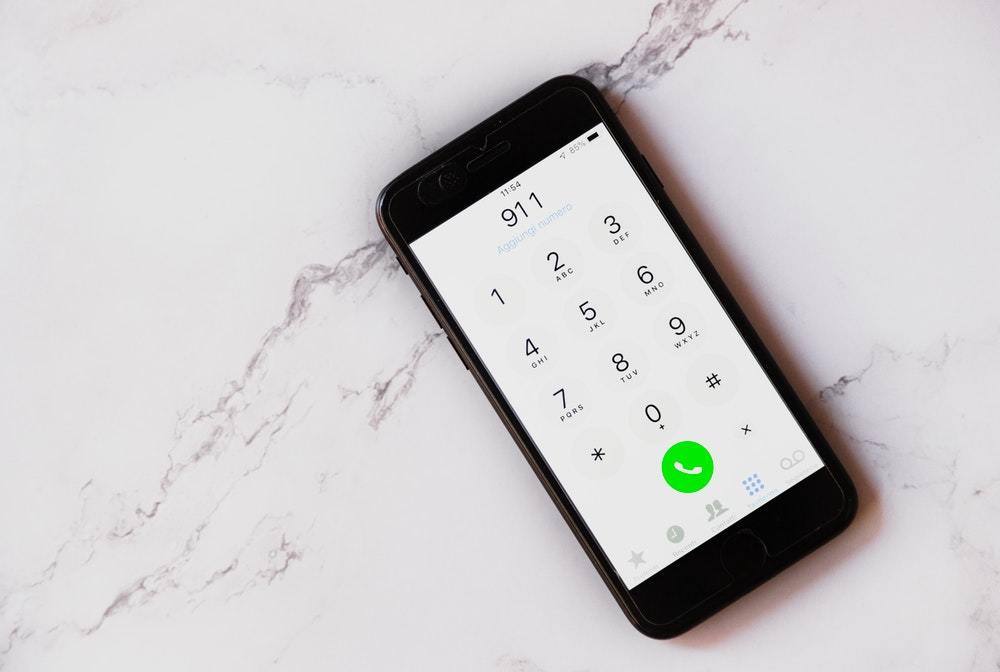Detox | 10 min read
Detoxing at Home: Ready to Handle an Emergency?
Medically Reviewed By

On August 31, 2022
Written By
On January 10, 2020

Quitting a drug is an extremely valuable, courageous, and powerful way to remove your life from drug addiction’s clutches. That being said, there are ways to go about detoxification that are safe and smart, and there are ways that are more dangerous and leave opportunities for bad things to happen.
Many addicts reach a point where they want to overcome substance use disorder. Some addicts opt to detox at home independently because it is cheaper, more convenient, and more discreet than a licensed detox facility. While it has its benefits, detoxing at home has several risks that can be fatal. Many experts advise addicts to overcome dependence on drugs under supervision by addiction specialists. Professionals help you deal with lethal withdrawal symptoms and the high chance of relapse during detox. Drug addictions are chemical, physical, psychological, and extremely mentally challenging. There is truly no easy way to overcome addiction.
So why is it unsafe and not a great idea to go through a drug detox at home? Most people assume that because they have their friends and family, their comforts like their bed, favorite foods, and personal items, and they are in an environment where they feel comfortable and safe, it is a good place to go through the detoxification process.
Unfortunately, this is not the reality. Drug detoxes can be extremely painful and uncomfortable and can even make a person violently ill, depending on the drug. In addition, many things can go wrong, causing a person to have lasting and extreme long-term side effects. Plus, there is the ability to relapse and end the suffering of withdrawal when a person is not under medical supervision.
Despite the risks, you can recover from substance use disorder at home. You can try detoxing at home with the blessing of an addiction specialist. Addiction specialists will prepare you for common challenges you will face. Home recovery is relatively safe for addicts with mild drug use. If you choose this option, here are a few things you need to know.
Making a Safe Plan to Detox at Home
There are many challenges to detoxing at home. The silver lining is that you can make some modifications to cope with most of them. If you are recovering from addiction at home, here are the changes you need to make.
1. Remove Drugs from Your Home
You can start using drugs again if they are within reach. Throwing it away will make it harder for you to get it. It will take longer to find them, giving you a chance to rethink your decision to continue using drugs. Keeping drugs out of reach will help you stay clean. It will also remove a trigger that may cause a relapse.
2. Free up Time for the Detox
Some addicts maintain busy schedules. It is difficult for them to spare their time for recovery from addiction. However, taking time off from your activities is ideal for a successful recovery. You will return to these tasks after a few days or a week when you finish the problematic parts of detoxification. Taking a break is appropriate because you may experience withdrawal symptoms that affect your productivity and interactions with others.
3. Get Support from Family and Friends
Recovering from addiction has difficulties. You will cope with these challenges better with support from people close to you than without them. They get help if you experience severe symptoms and perform small chores you cannot or struggle to do.

4. Eat a Balanced Diet
Drugs change how your body works. They may alter how your body organs function, putting you at risk of developing illnesses. You may have struggled to consume all the nutrients your body needs while depending on drugs. Consuming a balanced meal helps your body return to its normal functioning. This change gives you the strength to cope with detoxification.
5. Stay Away from Triggers
Relapse is a severe problem for recovering addicts. Triggers such as peer pressure, stress, and depression can make you fall back to drugs. Identify these urges and deal with them. For example, you can avoid friends that encourage you to use drugs. You may also engage in activities like exercises to take your mind off things that trouble you.
6. Keep Your Emergency Contacts Close to You
Recovering from addiction at home can have some complications. You should be ready if such happens. Making your emergency contacts accessible helps you cope with these difficulties. You should have emergency numbers, such as 911 and that of your doctor.
7. Join a Support Group for Recovering Addicts
People with similar challenges can help your recovery. Sharing experiences gives you insights for coping with difficulties and inspires you to complete your detoxification process.
Natural Detox at Home
You can detox at home without medications. Natural detox involves stopping the use of drugs without taking medicines to help you detox. While it is difficult, you must research before trying this method of recovery from a substance use disorder.

It would help if you also consumed a balanced diet, exercised, and had the support of those close to you to succeed.
People who detox at home naturally can try these techniques.
i. Detoxing Cold Turkey (Hint: It Involves Stopping the Usage of Drugs Abruptly)
Cold Turkey makes you susceptible to withdrawal symptoms, especially when quitting the use of opiates, alcohol, or benzodiazepines. This alternative is not advisable for people with severe addiction. Some addicts prefer to recover using this method because it involves stopping the use of drugs at once. They find it hard to use the drug with many restrictions.
ii. Detoxing Using the Tapering Method
This option is safer since it lets you slowly stop your drug usage. It helps you avoid the withdrawal effects people experience when they quit using drugs at once. This scenario involves gradually reducing the dose of substances you take. Your body adjusts better as you deprive it of the narcotics it has become dependent on.
You can taper in the following three ways
- Direct tapering involves reducing the drug your body depends on regularly. Many people decrease the dose of substances they take weekly.
- Titration tapering comprises dissolving calculated amounts of the substance in water to reduce the dosage used. You reduce the proportion of the mixture you take slowly to avoid severe withdrawal effects. Involve an expert to determine the amount of the drug you should mix with water. This method is ineffective with substances that are not soluble in water.
- Substitution tapering entails people with mild addictions replacing the drug they abuse with a similar but more comfortable-to-taper substance. For example, you can swap heroin with buprenorphine. This substitute curbs intense cravings while providing less intoxication than the original drug.
Risks of Trying to Detox Without Medical Supervision
You should be ready for some expected withdrawal symptoms before detoxification. However, some unforeseen dangers may arise. The common risks that you will face when you detox without supervision include:
You may have triggers associated with home you are unaware of. Most drug addicts and people with substance use disorders have triggers associated with the drug they are addicted to. This is due to a psychological phenomenon called conditioning.
Conditioning is the process in which a certain environment, sound, smell, feeling, person, word, item, or more causes a person or animal to react. However, the reaction is conditioned, so even if the particular stimulus is different, the reaction will be the same.
You can have a relapse. Staying sober is difficult. Once the drug is out of your system, you will struggle not to use it again. This scenario often happens when you do not identify your trigger for drug abuse. You are likely to struggle to identify what triggers you to drink. If you identify them, coping with the craving will be difficult. These challenges make it easy for you to relapse if you detox without professional supervision. Relapsing can potentially be fatal for many people because the user may jump right back to their former dosage, which can quickly become fatal depending on the drug and the amount of time since their last dosage. Many drugs cause the user to build up a tolerance to the drug, which means that as they take the drug, they feel the effect less and less until they bump up the dose. When you detox, the tolerance goes down.
You can have an overdose. Once you relapse, you will likely consume more drugs than you typically would. This is because your body might not break down the drug like it has been doing. This occurrence makes you take more substances as you have not felt their effect, which causes an overdose.
You face drug-specific risks. Drugs have different withdrawal symptoms. If you detox at home, you can miss preparing for a fatal effect. This lack of preparation can make you helpless when you have the symptoms. You will not know the medications you need to ease them. Some of them, such as irritability and hallucinations, can make you harm yourself or those around you.
Some drugs can create situations where people experience problematic symptoms such as the following.
- Hallucinations.
- Become extremely paranoid.
- Become temporarily delusional.
- Depression.
- Anxiety.
- Extreme mood swings
These symptoms can cause a person going through detox to experience the world differently than they usually would, making them act differently. This can make them do harmful things to themselves or other people in their vicinity. Because of this risk, it is dangerous for people to be around others without proper monitoring. It is also dangerous for them to be around themselves. Thus having a medical professional or detox-specific staff that works at a facility is a huge help to mitigate the harm they can do to themselves.
Can Detox at Home Be Fatal?
Yes. Some drugs have withdrawal syndromes so severe they can cause seizures and other dangerous effects that if not treated correctly can result in death or permanent impairment. Some people have detoxed at home without complications. However, their success has no bearing on your fate. Your case can be different. You may experience severe withdrawal symptoms that cause permanent physical or mental disorders. Your preparation is likely not to have accounted for intense withdrawal symptoms.
Having experts on hand to help you is very important. Your family and friends will likely do everything they can to keep you comfortable and safe, but they are not trained in the intricacies of detoxification and withdrawal. Plus, if there is a medical emergency, your friends and family may be unable to help you as a professional can. Or, if there is a medical emergency and you are by yourself, you may end up in danger or harm because no one around can help you.
Detoxing at home can also be dangerous for people who have other medical conditions. Issues such as anxiety or pre-existing heart conditions can intensify withdrawal symptoms. In addition, your health, age, and the number of withdrawal episodes you have had can influence the severity of your withdrawal symptoms.
It is best to rely on people who have dedicated years of their life to helping addicts get clean and who understand that the processes of detox and withdrawal are not easy. You are in good hands if you go to the proper care facility!
Detox safely with the help of experts from Ascendant New York Drug and Alcohol Detox to avoid your detoxification being detrimental to your health.
The Severity of Withdrawal Symptoms
Each detoxification is different. People experience withdrawal symptoms to varying extents depending on various factors. For example, a BMC Psychiatry study shows that addicts react differently to quitting using benzodiazepine. In addition, the psychological effects of withdrawal from benzodiazepines and alcohol may persist after physical symptoms disappear.
The severity of the effects depends on the dose of substances consumed, age, physical health, and duration of abuse. Large amounts of drugs taken over a long period often mean more severe withdrawal effects. However, this information is not adequate to know all the withdrawal symptoms you may have and their severity.
At-home Detox Relapse Rates
A relapse is a risk that faces recovering addicts. However, it is widespread among addicts who try to quit drugs at home. These fallbacks worsen with each that happens. You are likely to relapse because you have not identified your triggers or you do not know how to deal with them. Going back to using drugs is dangerous because it may cause an overdose or death.
A study that examined the relapse rate for alcohol had the following results.
After three years:
- 43.4% of addicts who detoxed on their own were in remission
- 62.4% of those that got help were in remission
After 16 years:
- 42.9% of individuals that sought help and were sober for the immediate three years had relapsed
- 60.5% of individuals that did not seek help and were clean for the three years after they stopped using drugs had relapsed
Based on these results, people who sought help coped better with the urge to use the substances they were quitting. Specialists prepared them for the difficult life of staying sober.
Other Types of Treatment Programs
Home detox is not the only option you have to recover from addiction. These alternatives may be the right fit for you.
Inpatient Treatment
Inpatient or residential treatment involves checking in at the detox facility for the detox. You receive 24/7 care from licensed specialists. After a careful assessment, a specialist develops a treatment plan that works for you and monitors you to ensure you overcome the addiction. The specialists also counsel you and your family and prepare you for life after you leave the facility. Your admission lasts a few days, weeks, or months. This treatment is the right option for addicts with severe dependence on substances.
Outpatient Treatment
This alternative comprises regular visits to the facility for treatment. The specialist schedules these visits well to facilitate your recovery. It allows you to continue with most of your activities and is safe. Outpatient treatment is appropriate for addicts struggling with mild addiction.
When Should You Call for Help?
Contact 911 when you feel you may require emergency care.

For example, call if:
- You have seizures
- You vomit without stopping for long
- You think you will hurt someone or yourself
- You vomit blood
- You breathe fast or struggle to breathe
- You have chest pain
- You hallucinate
- Your heartbeat is beyond 120 times per minute and shows no sign of slowing down
If You Are Looking After Someone Who Is Detoxing, Call If:
- The person has a seizure
- The person loses consciousness
- The person hallucinates
- The person threatens or becomes violent
- The person becomes agitated and does not calm down
Seek Immediate Medical Care If:
- You are shaky
- You have a high fever
- You experience severe belly pain
- The treatment they prescribed does not go according to plan
Detoxing at a Medically Licensed Detox Center
Specialists can help you cope with the various risks that you face when you detox on your own. They guide you on what to expect, withdrawal symptoms, and dealing with the risk of relapse.
Ascendant New York Drug and Alcohol Detox provides a conducive environment for detox. In addition to this, Ascendant has a team of professionals to help you identify your triggers and effective ways to deal with them.
Detoxing from hard substances like alcohol and benzodiazepine can have severe effects. Professionals help you deal with them. You can receive therapy through the residential treatment program or the outpatient treatment option, among many other treatment options. Specialists advise you on changes you need to make to avoid a relapse. They also guide you on effective ways to resist the urge to use drugs.
Final Thoughts
Detoxing at home can be dangerous. While others have done it, your case can be different. You may experience severe withdrawal symptoms, harm your family, or have permanent disorders. Your likelihood of relapsing is also high.
Consider alternatives such as residential or outpatient treatment before settling on home detox. If you must detox at home, seek guidance from addiction specialists at Ascendant New York Drug and Alcohol Detox. They will guide you on what to expect, changes to make, and how to deal with the challenges you may face.
If you determine that medical detox is the safest option, Ascendant’s drug and alcohol addiction treatment in New York can offer you a comfortable environment to withdraw from drugs or alcohol.
Reach out to Ascendant New York Drug and Alcohol Detox today for a medically safe detox and substance abuse rehabilitation.
Was this article helpful? Follow our blog for more information about substance use, addiction, and recovery. Recent posts include topics such as heroin withdrawal and facts about drugs.
Ascendant New York Editorial Guidelines
Here at Ascendant New York, we understand the importance of having access to accurate medical information you can trust, especially when you or a loved one is suffering from addiction. Find out more on our policy.
- Gupta M, Gokarakonda SB, Attia FN. Withdrawal Syndromes. In: StatPearls. StatPearls Publishing; 2022. Accessed August 27, 2022. http://www.ncbi.nlm.nih.gov/books/NBK459239/
- Liebrenz M, Gehring MT, Buadze A, Caflisch C. High-dose benzodiazepine dependence: a qualitative study of patients’ perception on cessation and withdrawal. BMC Psychiatry. 2015;15:116. doi:10.1186/s12888-015-0493-y
- Moos RH, Moos BS. Rates and predictors of relapse after natural and treated remission from alcohol use disorders. Addiction. 2006;101(2):212-222. doi:10.1111/j.1360-0443.2006.01310.x




